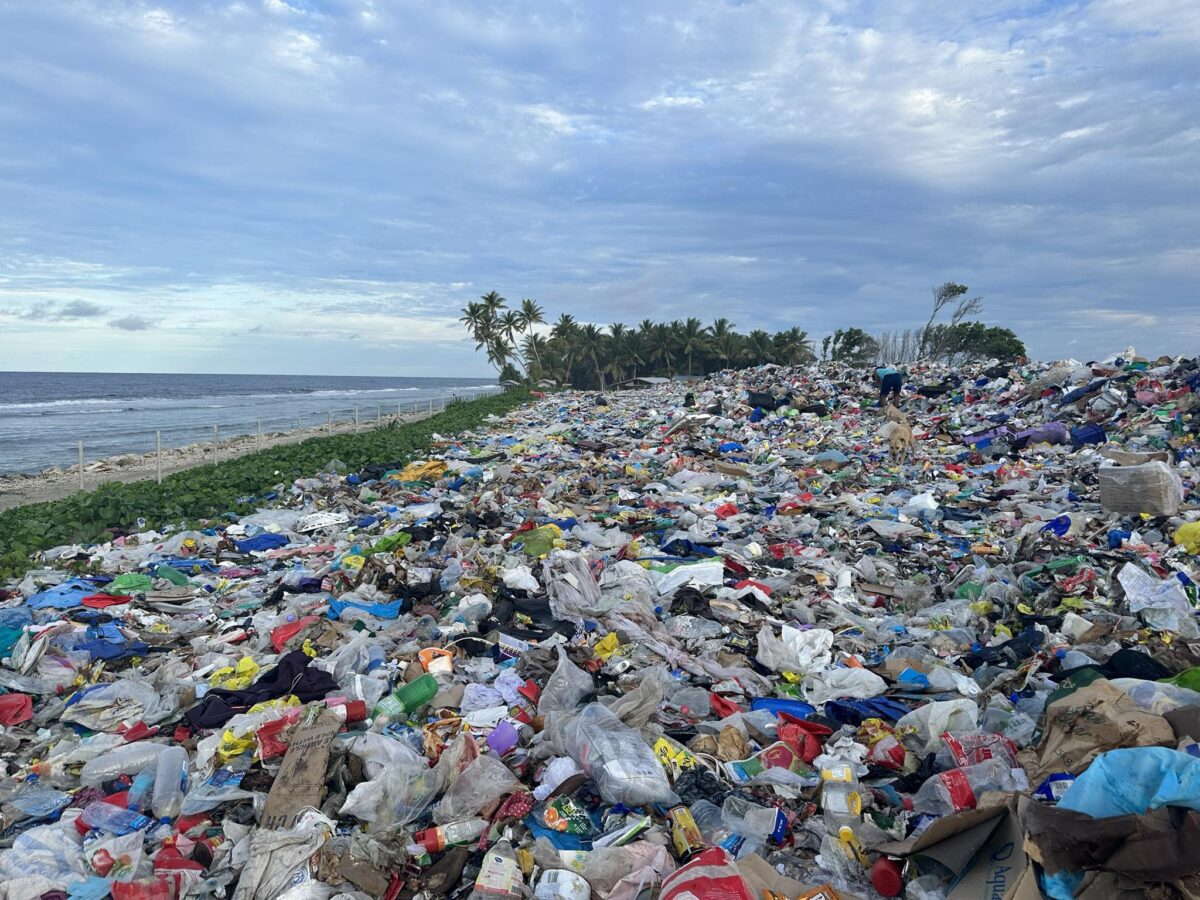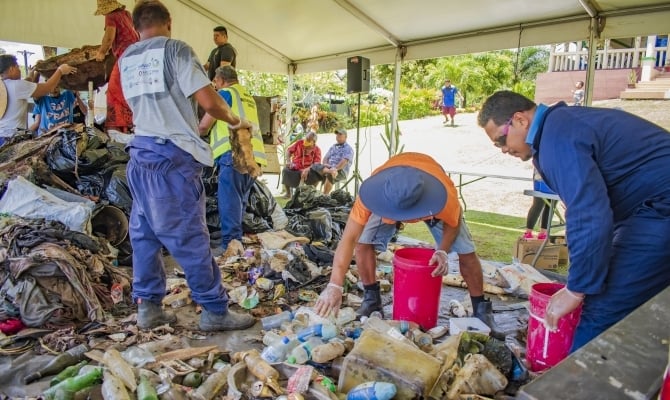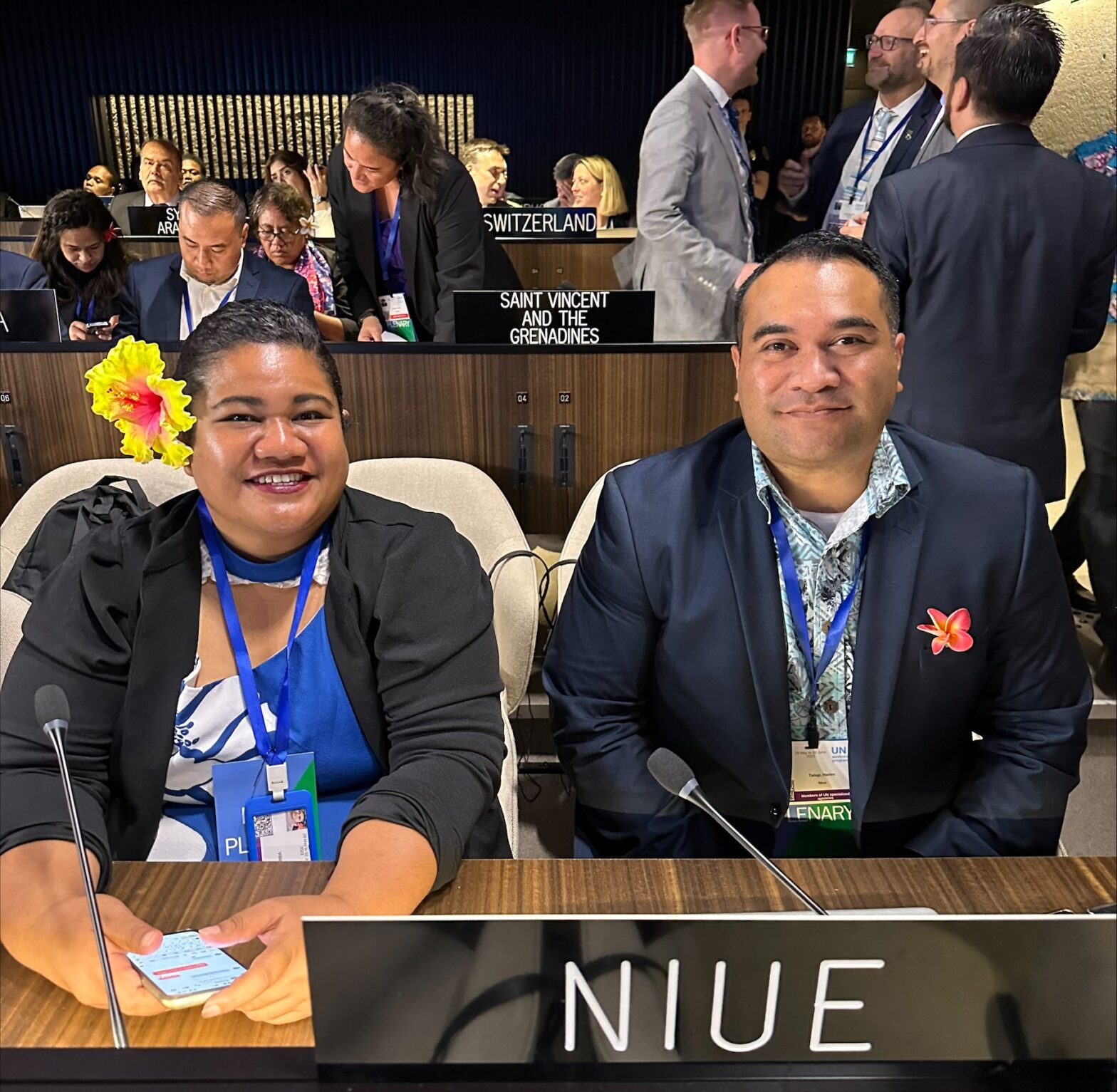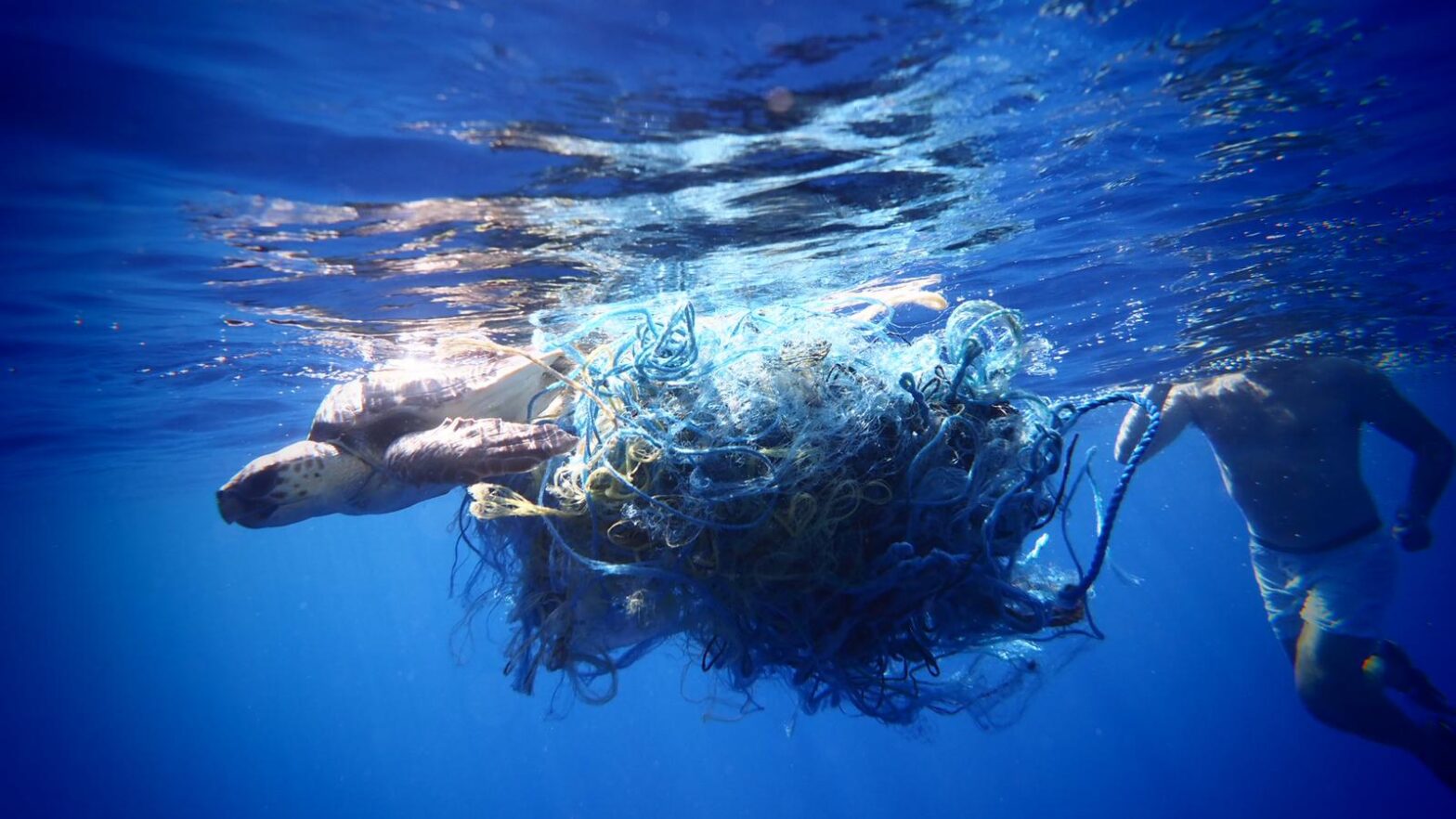Plastic treaty essential for Tuvalu as it fights an uphill battle with plastic waste. “We’ve done all we can nationally, we now need global cooperation.”
Of the 26 square kilometers of landmass that make up the Pacific Island of Tuvalu, 11 acres are taken up by their dumpsite. The space occupied by the dumpsite will continue to grow until a solution has been found.
Overpopulated with growing plastic waste, Tuvalu has attempted to remove and manage the plastic waste generated from plastic beverage bottles which are shredded by the Waste Department.
For Tuvalu, a legally binding instrument to address the plastic pollution crisis cannot come soon enough.
“We are already facing a lot of environmental challenges, and now we have this growing pile of plastics that we don’t have the facilities or the ability to cope with,” said Moe Saitala Paulo, of Tuvalu.
“We have made significant contributions and efforts to manage plastic waste as it’s taking over our dump sites – we ourselves have undertaken a lot of work to address this issue. However, despite all our efforts, it feels like we are constantly struggling uphill. We need a global Plastics Treaty to help tackle this challenge as we’ve done a lot that we can at the national level.”
From 29 May – 2 June 2023, the second session of the Intergovernmental Negotiating Committee to develop an international legally binding instrument on plastic pollution, including in the marine environment (INC-2) is taking place in Paris, France.
With several initiatives underway nationally to reduce plastic waste, Tuvalu is one of 12 Pacific Islands engaging in the negotiations helping to amplify a One Pacific Voice for a Plastics Treaty reflective of our island needs.
At the national level, Tuvalu has a buy-back scheme for used PET plastic bottles at 5 cents per bottle. Unfortunately, the initiative is only applied to plastic beverage bottles, with the hope to extend it to other used PET plastic bottles. The Tuvalu Department of Waste coordinates the initiative which collects and then shreds the PET plastic bottles to minimise storage hazards.
It is aimed that the shredded plastic will be sold to potential buyers which Tuvalu are now in the process of exploring.
But even when this happens, more may be needed.
“Potential buyers purchasing the shredded plastic bottles from us is not enough,” said Saitala Paulo.
“We still need to expand this shredding initiative to other plastic bottles and not just beverages, we may need to seek more than one potential buyer and this work underway now is just for Funafuti. We still have outer islands that are also facing dramatically growing plastic bottle waste. This problem is just too large for us to cope with on our own.”
Tuvalu is also proactive in what can be imported when it comes to single-use plastics. Nine different types of single-use plastics were banned in 2020 which include shopping bags, plastic water bottles and beverage bottles less than 1.5 litres, plastic water pouches and bags used to produce ice-blocks, straws, plastic and polystyrene plates, cups and takeaway containers, cutlery, cling film glad wrap, plastic sheets used for spreading on dining tables and plastic flags.
Yet to address the plastic waste, more must be done in this area also with the Government of Tuvalu now considering plastic food packaging.
“We still need to ensure that national consultations must be done before we explore our options, but we’re in a catch-22. If we continue to import food with plastic packaging our limited landmass will be overwhelmed with waste, unfortunately, due to limited land availability to grow and farm basic food items, importation is vital,” said Saitala Paulo.
“Tuvalu has a population of around 11,000 with more than half of our population on the main island of Funafuti. We are extremely worried about this plastic crisis and have hope for a new Plastics Treaty to help us. We’ve done all we can nationally, we now need global cooperation.”
This story was written by Nanette, originally published at SPREP on 30 May 2023.




